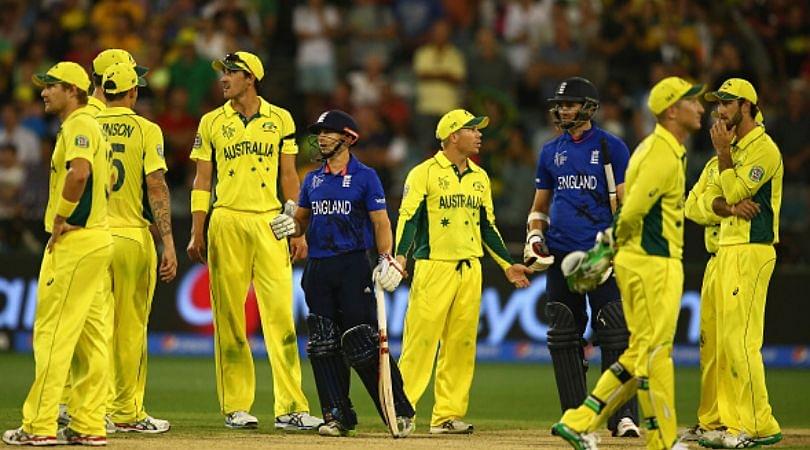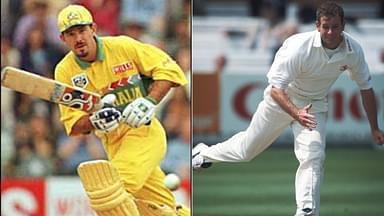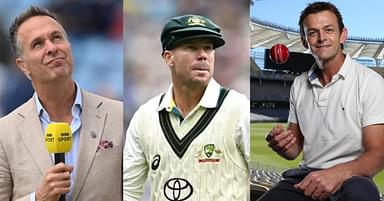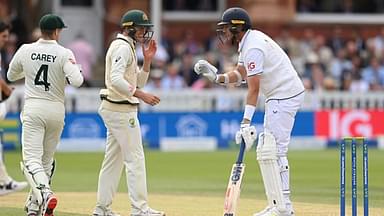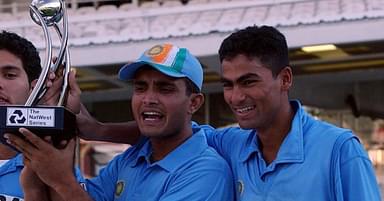James Taylor was denied ODI century: The former English batsman was once denied his maiden ODI century by on-field umpires.
Advertisement
During the second match of the ICC Cricket World Cup 2015 between Australia and England in Melbourne, England batsman James Taylor was denied his maiden ODI century by the on-field umpires in Aleem Dar and Kumar Dharamasena.
Chasing a daunting 343-run target, England commenced their World Cup campaign in shambles as they lost half their side including captain Eoin Morgan (0) by the 18th over.
Coming in to bat at No. 6, Taylor shared a 92-run partnership for the seventh wicket alongside seamer Chris Woakes (37) to provide some respite and respect to the English innings. Having said that, the latter getting out to Australia fast bowler Mitchell Johnson in the 36th over snatched hopes (if any) from England.
ALSO READ: What really happened during Fake IPL Player incident in IPL 2009
Having batted for nearly 10 overs, Taylor hit his first boundary, although off a top-edge, against Australia pacer Josh Hazlewood. Australia opening batsman Aaron Finch dropped Taylor in Hazlewood’s next over to give the right-hand batsman an additional chance.
Taylor subsequently hit Australia’s part-time spinners in Steve Smith and Glenn Maxwell for boundaries to reach in vicinity of his fifth ODI half-century. Another streaky shot on the first delivery of the 34th over off Australia all-rounder Mitchell Marsh saw Taylor completing his half-century.
Taylor hit Australia spearhead Mitchell Starc for a six down the ground in the following over to send some shivers down the fans’ spine. As Woakes got out in the next over, Taylor somehow managed to bat in the direction of his maiden ODI century.
James Taylor was denied ODI century
On the penultimate delivery of the 42nd over, Taylor missed a flick off Hazlewood and attempted to run for a single. With umpire Dar ruling an lbw appeal in the bowler’s favour, Taylor immediately opted for a review regarding a delivery which seemed to miss the leg-stump.
In the meanwhile, Maxwell’s attempt of a run-out at the striker’s end saw England’s James Anderson (8) short of his crease. Standing at square leg, Dharamasena raised his finger after watching multiple reviews.
Batting on 98* (90) in an innings which included 11 fours and two sixes, Taylor was seen pleading to the umpires with respect to the ball being declared “dead” after Dar ruled him out in the first place. As a result, the question of running out Anderson should have never arose.
The confusion resulted in the hosts’ favour as Anderson had to walk back to the pavilion as England’s last batsman. With Australia registering a 111-run victory in their World Cup opener, the last wicket’s decision was unlikely to affect the match but it sure denied Taylor of a century.
After the match got over, ICC (International Cricket Council) admitted that a mistake was made by the umpires on the last ball of the match.
“Following Australia’s 111-run win over England in the Group A ICC Cricket World Cup clash at Melbourne Cricket Ground on Saturday night, the Playing Control Team (PCT) met and reviewed the final ball of the game which resulted in James Anderson being given run out,” an ICC statement said.
“Article 3.6a of Appendix 6 of the Decision Review System Playing Conditions states that the ball should have been deemed dead when the batsman [James Taylor] was given out LBW. No further runs or dismissals were possible.
“The PCT spoke to the England team management and acknowledges that the game ended incorrectly and that an error was made,” read ICC’s statement.
“I honestly still don’t know the rule”
Yes indeed. RT @robhonan “@AndrewBryan321 This seems to solve the riddle #CWC15 #AUSvENG pic.twitter.com/4O9S2Da1xj”
— Alison Mitchell (@AlisonMitchell) February 14, 2015
Finch, who was declared the ‘Man of the Match’ for scoring 135 (128) with the help of 12 fours three sixes in the first innings, opened up on being unaware about the rule and appealing for the run-out as in any other situation.
“We had no idea what was going on. We appealed for an lbw, we appealed for a run out. We would have taken anything at the time. I honestly still don’t know the rule. Maybe it was a dead ball, but I still haven’t seen a rule,” Finch was quoted as saying after the match.
Taylor, who was forced to retire from cricket following the diagnosis of a serious heart condition called arrhythmogenic right ventricular cardiomyopathy (ARVC) in 2016, played a total of seven Tests and 27 ODIs and eventually scored an ODI century against Australia at Old Trafford the same year. The 30-year old currently works as a selector for England’s senior cricket team.
